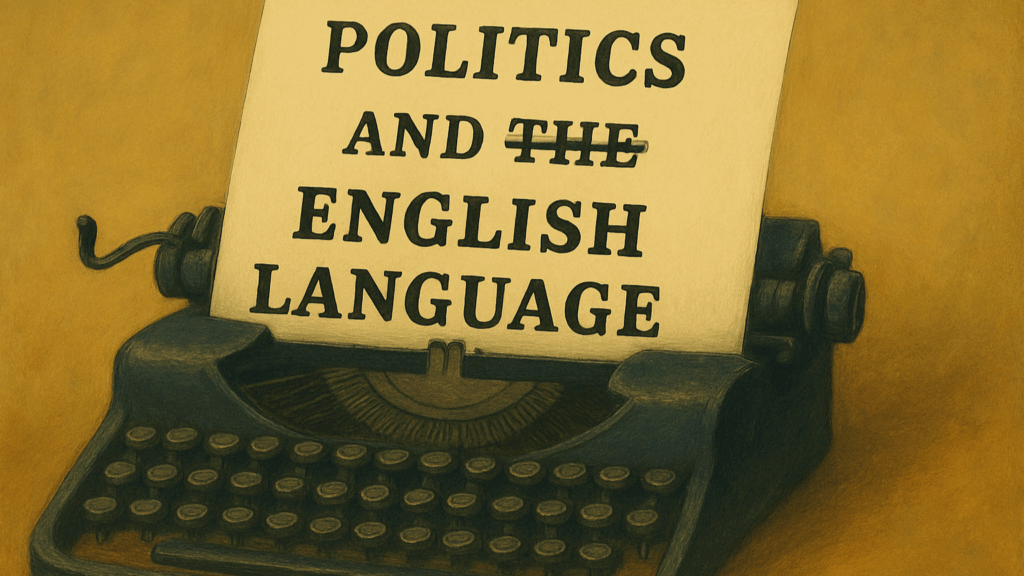As a recent article in our sister publication European Conservative noted, ‘Soon, monkeypox may no longer be a world health problem—not because transmissions are diminishing, but because the World Health Organisation (WHO) wants to change the name of the disease. Some health experts consider the current name to have problematic connotations.’ New viruses should be named in such a way as to ‘avoid causing offence to any cultural, social, national, regional, professional, or ethnic groups, and minimise any negative impact on trade, travel, tourism, or animal welfare,’ the WHO said.
Of course, it is hard to deny the reality-shaping capacity of words and phrases. The realities construed through public discourse can in turn influence people’s attitudes, for example attitudes towards vaccination, or voting choices. The way things are spoken about in public may even affect the outcomes of elections, as we have seen time and again.
To cite just a few examples, let us remember some of the semantic innovations by actors in positions of power the sole purpose of which has been to sugar coat realities, such as the U.S. at one point calling its wars ‘overseas contingency operations’. Another example is the redefining of words to accommodate specific agendas, such as changing the definition of marriage to include same sex unions.
Also, by misnaming issues, media actors can change the entire debate, as the Hungarian liberal press did by insisting on calling the government’s COVID-19 emergency legislation the ‘Enabling Act’ (an obvious reference to the 1933 law that enabled Hitler to assume dictatorial powers) in the spring of 2021.
The idea of political correctness has transformed the English language
What the public discourses in the West in recent decades have been mostly characterized by is politically correct (PC) speech. PC has been indeed successful in that it virtually eliminated racially or sexually offensive public speech. Also, the idea of political correctness has transformed the English language in a way so as to make it less androcentric, especially in academia, politics, and government. To give just one example, such words as chairman have been largely replaced by chairperson and now chair.
But many, including scholars, are sceptical of PC. South-African sociolinguist Geoffrey Hughes for instance questioned the ability of PC to attain real social change, and in his view, PC instead ‘camouflages social problems by polysyllabic obfuscation.’[1]
In fact, language change does not only occur spontaneously or bottom-up. Social and political changes and changing social norms do determine language use, but language use is then reflected in official language standards, such as style manuals or dictionaries, and ultimately, in legislation. Language politics, also called language planning is one of the dimensions of this complex relationship.
According to a dictionary definition, language planning is the ‘development of policies or programs designed to direct or change language use, as through the establishment of an official language, the standardization or modernization of a language, or the development or alteration of a writing system.’
From a Hungarian perspective, negative examples of language planning are the Slovak and Ukrainian language laws, as they attempt to repress the native language use of ethnic minorities. In the West, a typical example is the speech codes that have been imposed on a large number of campuses in the United States to suppress or inhibit offensive language. Hughes described these codes as ‘proposals for sanitizing the language, and therefore by implication the public mind.’[2]
Language policy has not spared the US House of Representatives either. In January 2021, re-elected House Speaker Nancy Pelosi introduced new rules requiring more inclusive language in House documents. The rules changed references to pronouns and familial relations so they are gender neutral, according to a statement from Pelosi. The changes targeted words such as “daughter,” “man” and “ombudsman”.
In a famous mishap, Democratic representative Emanuel Cleaver, who also happens to be an ordained minister, led the House in prayer during the swearing-in of the 117th Congress on Sunday and concluded his prayer by saying ‘Amen, and awomen.’ Cleaver later claimed his words were intended as a joke. Well, nobody laughed, but many more cringed in embarrassment.
But going back to monkeypox – a typical example of the capacity of words to both grasp and own reality but also to construe it is the naming of diseases and pandemics. Syphilis, for instance, was famously referred to as the French disease after the outbreak of a major pandemic spread by French troops invading Italy in the 15th century. The name Spanish flu for influenza is an example comparable to monkeypox – it was never accurate. The disease did not originate in Spain. What happened was that Spain was one of the few major European countries that remained neutral during World War I, so there was no wartime censorship to suppress news that might have affected morale. Spanish media was free to report on the emerging disease, with news of the sickness first making headlines in Madrid in the middle of 1918, and coverage only increased after Spanish King Alfonso XIII came down with the flu soon afterwards. Because nations undergoing a media blackout could only read in depth accounts from Spanish news sources, they assumed that Spain was the pandemic’s ground zero. On the other hand, the Spanish believed the virus had spread to them from France, so they started calling it the “French Flu.”
Some indeed offensive and also imprecise expressions have been rightfully scrapped from medical dictionaries and everyday speech as well. For instance, the term Mongolian idiot has been abolished altogether, instead, we talk about people with Down’s syndrome.
Hungarians are definitely not PC fanatics, and this is reflected in our language as well. Consider the Hungarian word for cartwheel – Gypsy wheel. Or think of our gastronomy – the delicious Gypsy steak or Jewish eggs, called egg and onion in English, a simple and tasty, originally classic Ashkenazi dish. Many in the West would probably recoil in horror if I named those dishes to them out loud in public.
Hungarians are definitely not PC fanatics
Democratic congresswoman Alexandria Ocasio Cortez has recently defended the use of expressions like Latinx–which the overwhelming majority of Hispanics in the US actually do not prefer according to several polls–by saying ‘gender is fluid, language is fluid.’ I strongly disagree with the first part of her sentence, but as to language, it is indeed fluid, in the sense that new words emerge, others disappear, and their meaning changes over time.
But there is no single recipe, pun intended, for a parlance that will be clear and precise and at the same time respectful and not offensive. What is certain is that we must carefully choose who we accept and authorize to be the arbiters in that matter.
[1] Geoffrey Hughes, Political Correctness – A History of Semantics and Culture, Oxford, Wiley-Blackwell, 2010, p. 296
[2] Political Correctness, p. 9





